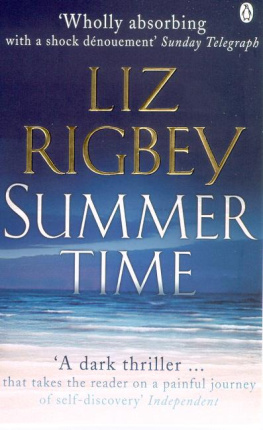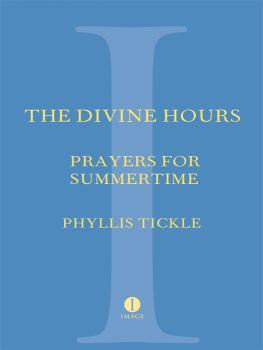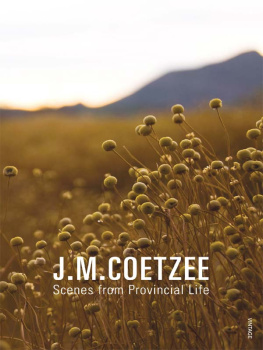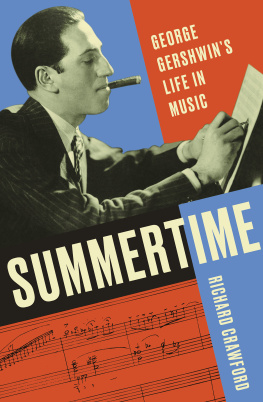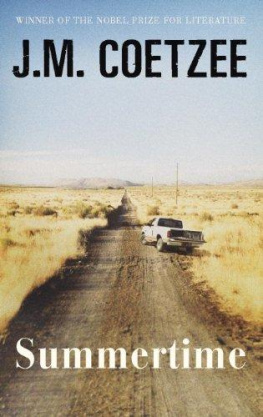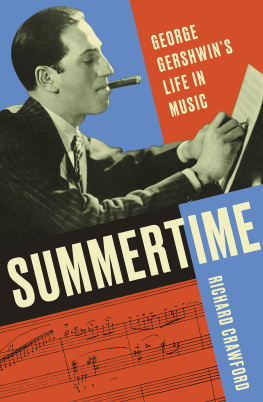Liz Rigbey - Summertime
Here you can read online Liz Rigbey - Summertime full text of the book (entire story) in english for free. Download pdf and epub, get meaning, cover and reviews about this ebook. year: 2003, publisher: G.P. Putnams Sons, genre: Detective and thriller. Description of the work, (preface) as well as reviews are available. Best literature library LitArk.com created for fans of good reading and offers a wide selection of genres:
Romance novel
Science fiction
Adventure
Detective
Science
History
Home and family
Prose
Art
Politics
Computer
Non-fiction
Religion
Business
Children
Humor
Choose a favorite category and find really read worthwhile books. Enjoy immersion in the world of imagination, feel the emotions of the characters or learn something new for yourself, make an fascinating discovery.
- Book:Summertime
- Author:
- Publisher:G.P. Putnams Sons
- Genre:
- Year:2003
- Rating:3 / 5
- Favourites:Add to favourites
- Your mark:
- 60
- 1
- 2
- 3
- 4
- 5
Summertime: summary, description and annotation
We offer to read an annotation, description, summary or preface (depends on what the author of the book "Summertime" wrote himself). If you haven't found the necessary information about the book — write in the comments, we will try to find it.
Summertime — read online for free the complete book (whole text) full work
Below is the text of the book, divided by pages. System saving the place of the last page read, allows you to conveniently read the book "Summertime" online for free, without having to search again every time where you left off. Put a bookmark, and you can go to the page where you finished reading at any time.
Font size:
Interval:
Bookmark:
ABOUT THE AUTHOR
Liz Rigbey lives in Italy. Summertime is her second novel. Her first, Total Eclipse received huge acclaim and was shortlisted for W. H. Smith's Thumping Good Read Award.
My special thanks go to my editor, Louise Moore, whose support and patience during this book's long gestation were beyond the call of duty. I owe similar debts to my agents, the inestimable Mark Lucas and Nicki Kennedy.
I was also lucky enough to receive advice or help from many others and I thank them all for their generosity. They include Tom Lourie, Cheryl Everett, Lucinda Pilbrow, Annie Lee, Felicity Cave, Hugh Miller, Juozas A. Kazlas, Carl Swanson, Annick Deslandes, Sally Osmond, David Miller, Christine Fletcher, Helen Meeson, Philip Meeson, Caroline Simpson, Alison Wheatcroft and Stephen Wheatcroft.
My mother told my sister and me this story many times. How it took days for the train to cross Russia and how, by the time they reached the border, it was clear that the baby was dead.
The father had known for some time. His three daughters, one by one, understood. The other passengers told each other with silent, shocked looks. Only the mother seemed incapable of comprehending what had happened to the child locked into her arms.
From the moment they boarded the train it cried. Not the babbling, gasping repetition of a newborn but the full, insistent cry of a six-month-old. When the Andreyev family arrived with their extensive baggage, their surly father and their screaming baby, everyone already in the car checked their tickets, hoping that they were in the wrong seats. When they found that they were indeed destined to travel west with the Andreyevs, they told themselves that the baby would soon stop crying and, anyway, the three girls took up little space. Each car was oversubscribed and each passenger wore a thick coat, hat, scarf and gloves. And the baggage! Bags, boxes, baskets, suitcases, piled high over the heads of the travellers, on the floor, on laps.
When, far later than expected and after an alarming series of shudders, the train finally pulled out of the station, the other passengers confidently awaited the silence that must come as soon as the child felt the lulling rhythm of great metal wheels on great metal rails.
But the silence did not come.
The train cut its way out of the city in a straight line like mighty scissors, past factories and apartment blocks and squares of snow and mud where children played. The passengers sat unhappily listening to the endless circle of cries. Those tiny gaps of silence when the baby drew breath were all too slender and each was followed by a roar of such misery that it seemed the child was voicing the sadness and regrets of everyone present. In other cars, passengers tried to lift their mood by introducing themselves, sharing bread and occasionally pork-fat, producing bottles, telling stories. But in the Andreyev car all relationships were stunted by the baby's screams.
As Moscow retreated behind the train the travellers were at first glad to see the countryside. It was good to peer, through the human bulk, the baggage and the dirt which obscured the window, at the snowy landscape. They soon tired of it. Mile upon mile - and for the travellers that meant hour upon hour - of dark pine forest, hour upon hour of flat land, unbroken by trees or roads or hedges, any variation in its colour or crop or camber obscured by the cover of snow. When forests came they were disappointing, dark slabs of uniform conifers. It was like travelling through a giant black and white jigsaw. And still, as night gathered outside the train and wrapped itself around the massive, endless expanse of snow that is Russia, the baby cried.
'Can't you stop it, for God's sake?' someone yelled at last. The speaker was a man, young, with cold blue eyes and red cheeks. But his exasperation was masked by the baby's yells and all the mother could do was shrug and shake her head.
The father ignored the child and his wife but sat still, thin-faced, hard-mouthed, his eyes busily running over the faces of the passengers in a way that suggested a certain professionalism. Four, yes four children, and the family well-dressed too, with each of the girls carrying a small leather travelling-case on her lap. It was clear to all that Andreyev had done well. His menacing air of officialdom prevented many a protest at the baby's cries.
After the first few hours the train stopped. There was no station, no light, no apparent reason. Some of the train's own staff, perhaps including the driver, were seen standing down by the rails smoking and a few brave passengers jumped out of the train and then a few more. The Andreyev car was soon empty except for the mother, the three girls and the shrieking baby.
Only when the first pearly light fell on the grey faces of the travellers did the train shudder into motion. And still the baby cried.
But then, hours after everyone had given up any hope that the noise would stop, ever, the gaps between the baby's cries grew gradually longer and the angry edge to the child's roars began to disintegrate. Passengers exchanged hopeful looks. Several prayed. They peered at the scarlet-faced bundle in the mother's arms. It was scarcely whimpering now. The monster seemed to be shrinking before them. The baby was falling asleep.
When at last silence fell, satisfaction stole around each passenger as though some special gas had seeped under the door. Everyone, except the mother, who still held her baby, fell asleep. Some slept a long time. The cramped conditions brought others this relief only in snatches. From time to time those who were awake glanced at the baby and a suspicion gradually became a conviction. It was white now, very white. And no matter for how long people watched it, they detected no movement at all. The baby was dead. The three girls watched horror register on the faces of the passengers. No one spoke of it, no one spoke at all. The woman continued to cradle the unmoving bundle in her arms, holding it to her as though to warm it.
As soon as he opened the door of the Andreyev car, the guard detected that something was wrong. It was too silent for a start. Then the way everyone looked up at him was wrong too. They seemed to be waiting for him to notice something. Only one person did not watch him, a tired woman with a sleeping baby.
He looked at the woman and at the bundle lying across her lap. He reached out to the child's small, white face. Cold. Colder than metal, colder than stone, cold as the grave. He lifted the baby's hand and tried to bend the fingers but they would not move. The baby had been dead for hours, more than a few.
The guard said: 'You will have to give the baby to me. It is dead and can travel no further.'
'No!' cried the mother. 'No, no, he's asleep.'
The woman was sobbing now.
'No! No!'
The father stood up suddenly.
'Give him to me,' he ordered, and the woman allowed the stiff bundle to be removed at once from her arms. Watched by the large eyes of his three daughters, he handed the baby to the waiting guard who took it gingerly.
The woman clutched at the guard's shabby uniform. 'Please, please, please, promise me that my child will be given a proper burial!'
The man looked at her. He could give no such assurance, indeed, he was even now wondering how to dispose of this unwanted, inanimate baby in as swift and trouble-free a manner as he could and the possibilities did not include hours of pickaxing at the frozen ground.
He left the car carrying the baby and was heard descending from the train. The mother cried silently and ceaselessly for the rest of the journey.
My mother knew this story well because she was the youngest of the three daughters on the train and the sobbing woman was my grandmother. It was a story I heard all through my childhood but when, in my teens, my mother moved into a clinic for the mentally ill, it slid from my mind along with her other stories like a shoal of small fish sliding through a crack in the rocks. Only when I gave birth to a son myself did the fish dart back again, flashing silver at me when, almost elastic with love, I held my baby in my arms. When he died and was taken away by a thickset woman in dark clothes that might have been a uniform, I sat in our house in California and it seemed that the woman who had sobbed in the train in the snow in eastern Europe more than sixty years ago was me and I was her.
Next pageFont size:
Interval:
Bookmark:
Similar books «Summertime»
Look at similar books to Summertime. We have selected literature similar in name and meaning in the hope of providing readers with more options to find new, interesting, not yet read works.
Discussion, reviews of the book Summertime and just readers' own opinions. Leave your comments, write what you think about the work, its meaning or the main characters. Specify what exactly you liked and what you didn't like, and why you think so.

